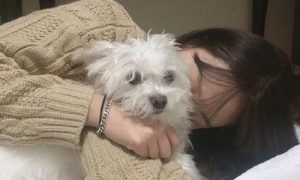i want to buy(第二个动词为不定式)a gift
经常使用后接不定式的动词:Decide.Learn.want.hope/wish. Refuse. Manage.would like. Pretend. Offer. Promise. Choose.plan.agree. Ask. Help
I haven’t decided where to go/what to do/how to do…/which to choose/where to go..
We(主) want(谓) them(宾) to help me.–不定式做宾语补足语
接不定式不带to的动词(四看三使二听一感受:look at, see,watch, notice.let. Make.have.hear. Listen to. Feel. 例:i hear him sing every night / let him go/mum made me go to bed early.
Cindy used a brush to painta picture of a park.–不定式作目标状语。
定冠词 the
There is a big tree in front ofthe classroom(没法肯定的前面-树在课堂外)./there is a big desk in the front ofthe classroom.(能肯定的前面-桌子在课堂内)
用法:1 特指:the photo was of her grandpa. 2.上文呈现,下文再次提到: there was an accident on the road. Two men were hurt in the accident. 3两边共知的turn down the radio, please. The baby is sleeping. 4唯一无二的: the sun is shinning brightly.
乐器名词前必需用定冠词,体育活动名词前不消冠词。Play the piano/ play basketball.
用在受介词短语润饰的名词前wash your hands when you touch the food on the table/ keep the taps in the bathroom clean.
名词后若有介词短语加以限定,则具备特指意义,此时须用冠词:the pencil on the table is short…
发音纪律:在子音音素前,读 the United States the useful book. 在元音音素前读i the umbrella the old doctor the honest man.
名词Nouns
可数名词的复数情势:
一般环境加-s: school-schools; elephant-elepants
以-s,-x,-ch,-sh末端:box-boxes; watch-watches.
子音字母以y末端: bluberry-blueberries;
以o末端:纪律1:完备的名词以“子音+O”末端,后面加-es => echo-echoes反响 potato-potatoes 纪律2:完备的名词以“元音+O”末端,后面要加s => radio-radios收音机 kangaroo-kangaroos袋鼠 底层逻辑:关乎发音问题(天然拼读)名词变复数无论后面加甚么,无论读s,z仍是iz,在原单词根本上加之尾缀,现实上原单词发音根基上稳定。若是马铃薯potato+s的话,potatos后面的tos中的o在2个非重读音节t,s的中心,这类环境下,o是不克不及发出其本来的音的,只能发,如许就违反了原单词发音稳定的原则,为领会决这个问题那末全能的e就出来了,若是加之es就是potatoes,oe这个发音自己就是,不受弱化发音的影响。而纪律1的环境原单词末端自己就含有元音的字母组合后面直接加s也不会致使产生音变如radio和kangaroo。纪律3: 非完备的单词复数(外来词,缩写词等)如photos(原词是photographs),pianos(原词是pianofortes)
以f(e)末端:变v+es => thief- thieves; wife-wives
不法则变革: man-men,foot-feet,child-children,mouse-mice, german-germans,单复数同形:chiness,japanese。
常以复数情势呈现:clothes, trousers,shoes,noodles,
This pair of shoes isred.
团体名词 people,police;
How many people are there in your family?
不成数名词:air, earth,water,pollution,food,advice不克不及用不定冠词a/an润饰 a cup of flour/two spoons of sugar/ some syrup/ a glass of milk.
专着名词 proper name: the coronavirus
名词所有格:加s或 ’s, children’s/ teachers’/lucy and lily’s mother(lucy和lily配合的母亲是一个单数)/lucy’s and lily’s mother(lucy和lily各自的母亲是2个母亲复数)
代词:
人称代词:主格i,we,you,he,she,it,they,宾格me,us,you,him,her,it,them; 物主代词:形容词性物主代词 my,our,your,his,her,its,their;名词性物主代词 mine,ours,yours,his,hers,its,theirs;
反身代词:myself,ourselves,yourself,yourselves,himself,herself,itself,themselves。
The other特指两个或两部门中的另外一个或另外一部门,可接单数或复数名词,暗示两其中“一个……另外一个……”,经常使用布局式为:one…the other…
1.He has two brothers,one is a teacher, the other is a docter.
2.There are 48 students in our class,some work hard,but the other students don’t.
The others特指某一范畴内的“其他的(人或物)”至关于the other+名词复数,指残剩的全数。
There are 48 students in our class,some work hard,but the others don’t.
咱们班有48个学生,一些进修尽力,其余的不尽力。
Other“其他的,此外的”位于名词前做定语。
We learn chinese,English,math and other subjects.
Others至关于other+名词复数,指残剩的另外一些,并不是全数。
1.Some students are doing homework,but others are talking loudly.
2.A lot of people are in the park, some are singing,others are dancing.
Another泛指同类事物中三者或三者以上中“另外一个”,只能取代或润饰单数可数名词。
I don’t like this one,please show me another.注重:another+名词单数=one more+名词单数
another+数词+名词复数=数词+more/other+名词复数
1.I want to have another apple =I want to have one more apple.
2.We need another ten chairs=We need ten more/other chairs.
It is important to do…—it是情势主语。
动词语态
No nets are requiredfor this type of fishing/each picture should be made a little different from the one before it–被动语态(the passive voice) Be+P.P 用的缘由1 夸大,2礼貌 3 援用信息(it is reported…
一般如今时:am/is/are + PP 一般曩昔时:was/were + PP 一般未来时: will be + pp
情态动词被动:情态动词+be+pp 如今完成时: have/has + been+pp 如今举行时:am/is/are +being+PP
不及物动词,结合动词没有被动(此类动词无动作经受者) SARS took placein 2
003/ it seems impossible to the foreigners 常见结合动词:feel. Look. Taste.sound.smell.
自动中省略to的不定式(make,have,let,see,hear),在被动中要还原to:we saw the workers build the hospital…=>the workers were seen to build the hospital…
短语中的介词不克不及漏=> the doctors and nurses have taken good care of the patients/ the patients have been taken good care of by the doctors and nurses.(of和by分属于分歧的意群)/ people all over the world are praying for china/ xiaoming is unhappy,because heis laughed at very oftern.
an 放在元音身分开首的单词前面 the在元音身分开首的词前发zi的音 in the eveninga set of 跟复数 a pair of trousers 一条裤子two pairs of trousers两条裤子 a glass of juice 一杯果汁 two glasses of juice some可数和不成数名词均可以润饰 birds in the tree 外来的 apple on the tree长出来的 at table在就餐 at the table在桌子旁 orange橘子可数,橘汁不成数 glass杯子可数,玻璃不成数 room房间可数,空间不成数 on the bed在床上 in bed睡觉 主系表 表感官sound smell taste feel the food smells terrible 表变革 turn become get go come the food went bad 弹西洋乐器play the piano 其他不消the eat well不克不及用have well, have/take medicine no润饰可数名词单数-not a,润饰不成数和可数名词-not any, food泛指食品是不成数,表食品种类是可数 milk is a good food,三餐前不加冠词,chicken小鸡是可数 鸡肉时不成数,fruit瓜果总类不成数,瓜果种类是可数,for+某餐+sb like固定句式 for lunch i like eating ,on sale 促销,正贩卖,for sale待售 at a good price 商铺-shop英国 范围小 store美国范围大,clothes只有复数情势 many润饰,in表穿着时+色彩,衣服,辫子,帽子,眼镜 i will take it 买,拿,get,you are welcome答复感激 That’s all right回应抱愧等 in跟泛指年代季候和周 on是详细的某个早中晚,have/hold a party,take/make a trip,a round trip来回路程,because of跟名词 动名词,代词指导状语从句,hour还可指不肯定的某一时候和时刻 at this late hour在这么晚的时辰,还可指固定的时刻 office hours are from 7am to 6pm,subject有学科的意思 who are you waiting for=whom are you waiting for ,whom是who的宾格,study English on经由过程 the radio,two sets套 of books,over是不接触的正上方反义是under,above是不接触的上方不必定是正上方,反义是below,bread 不成数 ,three thousand不加s,thousands of不计其数要加s,hundred也同样,3+2=5three and two is five,减用minus,乘用multiply,除divide,序数词 twentieth,fortieth,thirteenth,hundredth,twenty fourth,draw-drew-drawn素描,be good at=do well in, tell story,tell sb sth,tell sb to do sth,say this word, speak a little Chinese,be good with对甚么有法子,长于应付甚么的,be good to 对xx友爱,call sb at+德律风号码,get dressed表穿衣服的动作 he can get dressed,be dressed in表穿戴的状况,early同时具备adj和adv的用法,two pieces of work两份事情,exercise可数时作操练,习题,体操,不成数时作活动,熬炼,sometimes有时,some times一些次数,sometime某个时辰,some time 一段时候,详细时候几点几分只能用what time发问不克不及用when,年代日期时只能用when ,take the subway地铁,he sometimes takes a bus,every day每天名词性短语作状语 everyday形容词,天天i study everyday English every day,what do you think of = how do you like你认为xx怎样样? one 11-year old, a four-day trip, be afraid to do/doing后者夸大惧怕做某事发生的后果be afraidthat…beafraid of sth,look like指表面,be like既指表面也指性情,分开某地 leave+地址,出发去某地 leave for,dream of/about空想…,arrive in大处所/at小处所,listen to music,be honest rather clever诚笃比聪慧更要紧, dress sb给xx穿衣服,put on 穿的动作,wear穿的状况,practice my English 跟名词和practice playing violin跟动名词 ,它自己也可作名词,too many people, too much homework,much too fat太胖,many/much-more-most,i can’t relex either(too用于疑难和必定句不克不及用于否认句)feel感觉:how do you feel about all these changes. 摸起来-系动词(用法和sound,smell等同样) the silk feels very soft. Be strict with sb对或人请求严酷,be strict in sth对某事请求严酷。 remember to do记得要去做(未做),remember doing sth记得做过(已做)。 keep + 宾语+形容词,副词,如今分词,介词短语,have to客观的不能不,must主观的不能不。 must i stay here after school? Yes, you must. No,you needn’t/you don’t have to. Mustn’t暗示制止, don’t have to暗示没必要, let’s do sth 必定答复 OK/SURE/All right/ good idea 否认答复 no,let’s/sorry,i… 暗示提建议的句型:shall we do..? why don’t you do…? why not do…? what/how about doing…? let’s do…/ would you like to do …? kind of = a little/a bit/a little bit all kinds of flower各类各样的 different kinds of animals分歧种类的, she sleeps all day(whole day) , friendly是形容词… to对xx友爱。 how are you getting along with your new classmates? Get lost = be lost = lose one’s way in+名词组成的短语:in need, in trouble,in fact,in deed(确切,其实)cut down trees. Be made of由xx制成可见原质料the desk made of wood be made from看不见原质料salt is made from sea water. newspaper是可数名词,news是不成数名词,paper纸张不成数,paper试卷论文是可数, washing the dishes= do the dishes, do the washing洗衣服, drink通常是不成数,若是是饮料种类或份数时 为可数名词,drink tea不成数, wish sb to do sth i wish to visit sanya, i wish you to go, wish sb sth祝福或人某事, wish+ that从句暗示难以实现的欲望, hope to do sth, hope +that从句可以实现的欲望。 any other 任何此外,任何其他的 tom runs faster than any other boy(单数) in his class, any other+单数= the other+复数。Other 此外的常与复数名词和不成数名词利用other teachers,other information. Others=other+复数名词(不是全数) the others= the other+复数名词(全数其余的人或物)some of the pens are red, the others are black只有赤色和玄色; some of the pens are green,others are blue除绿色和蓝色可能另有其他色彩。another另外一个 泛指浩繁中的一个,i got two pens: one is red, the other is green; i got 3 pens,one is red,another is white, and the third is green.
如今举行时:重读闭音节子音末端动词双写子音字母+ing,putting,以不发音的字母末端去掉字母+ing-making,以ie末端的重读开音节单词变ie为y+ing dying,tying,lying,there is rain=it is raining=it is rainy,fine weather好天,take a message捎口信,could i 开首的句子答复用,yes,you can,dry使干燥,don’t cry dry.your eyes, vi,变干vt,the wet will dry,have a good time/fun/enjoy(in)doing sth, on(a)vacation,they are on a vacation, they go on a vacation ,如今举行时表未来,按规划或放置将要产生的动作-go, come,start,leave,arrive,he is leaving guangzhou tomorrow.和always连用表达某种豪情色采,赞美,不满,腻烦,he is always helping others,he is always losing his key,感官动词没有举行时态see,hear,sound,taste,表豪情,立场,生理状况的动词没有举行时态like,want,believe,hope,love,hate,副词和介词across和go搭配利用,across from在xx对面,至关于on the other side 或opposite,cross=go across ,耗费 sb人 spend in doing,cost前面是sth物,it takes sb some time to do,often用法一般用一般如今时,he often helps others,there be后面用两个以上主语时be动词单复数情势以近来的主语来变,there is a Apple and two pears,there is some money,there are some living things in that planet, there are a lots of sheep,高tall指人或修建物,high指抽象的空间位置和水平的高,山,may be作谓语,maybe作状语,she may be a teacher,maybe she is a teacher, 润饰可数名词 必定用 a few/few,润饰不成数用a little/little,she has a few.friends,she has few friends, a pair of glasses is there,medium build指身高,what size would you like 扣问尺码 ,the number of 跟名词复数但谓语用单数is,a number of跟名词复数但谓语用复数are,都暗示很多xx, blow it out in/at one go一口吻吹完,be popular with遭到xx接待,would you like some coffee?yes please/no,thanks,would you like to go with me?yes i would like或 love/i would like或love to but i am busy,im afraid not,are there any……?必定答复是yes there some……,否认答复是no there isn’t any……均可润饰可数和不成数名词,milked a cow挤奶,worry作vi时要搭配about,don’t worry about him=don’t be worried about him,hear夸大听到告终果,hear sb do听到或人做了,hear sb doing 听到或人正在做,一般曩昔时,曩昔产生或曩昔常常习气性地产生, 以子音字母+y末端的动词改y为i+ed,单复同形fish,sheep,deer,Chinese,japanese,对xx腻烦 be tired of…,熬夜 stay up late,
八年级英语quite a few 很多,至关多,润饰可数名词,quite a little润饰不成数, seems to be/seemed to be/seemed that…彷佛,仿佛,看来,try doing测验考试做某事,try to do是极力做某事 different from,分歧,difference between差别,anything用于否认句和疑难句,something用于必定句和暗示约请和哀求的语句中,would you like something to drink,hardly ever几近没有,历来没有,ever,曾,历来,how often do you watch tv? twice a week/once扣问次数和频率,how soon 多久今后扣问, maybe he is ill,so he may be at home, but比however语气更强烈,but不必要逗号直接指导分句,though=although不克不及和but连用,i can both speak and.write chinese well / both of the movies are good, 博得第一win first place. my mother told me a good friend is like a mirror真谛格言如今时, make sb do动词真相,可理解为省略to的不定式, 主将从现,主情从现,reach for sth伸手够某物,the weather is becoming hoter and hoter , the taller of the two students,两其中较高的阿谁学生,
Play a role in doing… the story is made up编造,make oneself up给或人化装,make up the medicine构成, take… seriously器重,当真看待, mind doing..介怀… would you mind (my) opening the window?必定答复certainly not/not at all/ 否认答复i wish you wouldn’t, hope to do sth/hope + that从句, i hope/wish to see you tomorrow(wish暗示来日诰日可能来不了),i wish you to come tomorrow(只有wish有wish sb to do sth的布局)i hope you to come(这是错的),i hope to find out … can’t stand waiting any more不克不及忍耐, i can’t stand the hot weather, happen产生 呈现(偶尔产生),an accident happened yesterday/what happened to you? Take place产生,举办(规划)happen可巧 i happened to see him on my way home/ it happened thati saw him on my way home. Be famous for 因..而出名, be famous 作为..而出名, be famous to为…所熟知。 appear on TV/in a film/in a play/ on the stage/ he became mad成果/ the milk went bad不太好的成果/ the leaves turn yellow in autumn色彩,气候/the boy grew stronger and stronger. 表可能:Can无必定,could,may无疑难,might, he was alwaysready totry his best.
动词不定式作宾语 we decided to visit out grandpa/she wants to buy a new…/they all agreed to gowith him, think/find/ feel +it+形容词+动词不定式 i主find谓 it情势宾语 difficult宾补to do the job well
动名词和不定式的区分:stop doing sth遏制做某事 stop to do sth停下往来来往做另外一件事,forget doing sth,forget to do sth, send 邮寄,送,send for 派人去请。 be able to可接各类时态/ can/could。 Promise to do/ promise +that/promise sb sth.make a promise, keep one’s promise, break one’s promise, at the beginning of …在xx起头,in/at the beginning开初, take up a hobby学着做,起头做,占用, take off腾飞,脱下,take away拿走,take after长得像,take down 记下,至关于write down, to questioned the idea of making resolution, what’s the meaning of…?What does…mean? What do you mean by…? discuss sth with sb, 一般未来时 be going to(事前规划,主观大将要产生) +动词真相, look at the black clouds,it is going to rain. Play a part in …介入..在..中阐扬感化, human区分于动物,person无性此外人,people凡是作复数来说,man(kind) 作人和人类的时辰不克不及加不定冠词a







